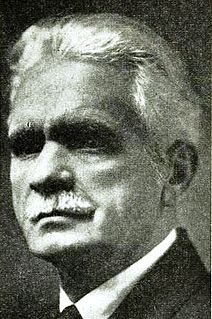A Quote by Georg C. Lichtenberg
Related Quotes
Our passions are the chief means of self-preservation; to try to destroy them is therefore as absurd as it is useless; this would be to overcome nature, to reshape God's handiwork. If God bade man annihilate the passions he has given him, God would bid him be and not be; He would contradict himself. He has never given such a foolish commandment, there is nothing like it written on the heart of man, and what God will have a man do, He does not leave to the words of another man. He speaks Himself; His words are written in the secret heart.
It was not reason that besieged Troy; it was not reason that sent forth the Saracen from the desert to conquer the world; that inspired the crusades; that instituted the monastic orders; it was not reason that produced the Jesuits; above all, it was not reason that created the French Revolution. Man is only great when he acts from the passions; never irresistible but when he appeals to the imagination.
Nature in causing reason and the passions to be born at one and the same time apparently wished by the latter gift to distract man from the evil she had done him by the former, and by only permitting him to live for a few years after the loss of his passions seems to show her pity by early deliverance from a life that reduces him to reason as his sole resource.
Does God have a reason for wanting us to be charitable, to take care of those who can't take care of themselves? Either God does or God doesn't, it's just logic. If God has a reason then there is a reason independent of God and whatever God's reason is we should figure it out for ourselves. There is a reason and God doesn't really ground morality at all. God wants us to give charity because it's the right thing to do.
First, we believe that God is a being with a body in form like man's; that he possesses body, parts and passions; that in a word, God is an exalted, perfected man. Secondly, we believe in a plurality of Gods. Third, we believe that somewhere and some time in the ages to come, through development, through enlargement, through purification until perfection is attained, man at last may become like God - a God.
There is One God and One Mediator between God and man, the man Jesus Christ (cf. I Tim. 2:5). For He still pleads even now as man for my salvation; for He continues to wear the Body which He assumed, until He make me a god by the power of His Incarnation; although He is no longer known after the flesh (cf. II Cor. 5:16) ? I mean, the passions of the flesh, the same, except sin, as ours.
by taking notice of those feelings and images that seemed to be in my blood and bones rather than in my head, I had found myself able to behave, not less reasonably, but more so. Apparently it was as much a false extreme to try and live by reason alone, leaving the passions out of count, as to ignore reason and put passion in its place as the guiding force of life.



































